Free Learning Difficulties Including Dyslexia webinars
8 Replies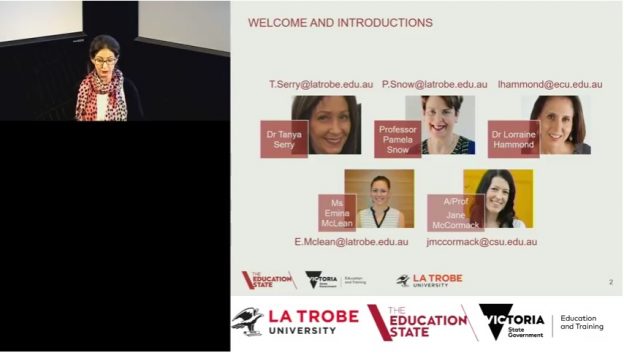
La Trobe University and the Victorian Department of Education have this year collaborated to run workshops across Victoria about learning difficulties including dyslexia. The workshops have been available to teachers and other Department of Education staff.
The information from these workshops is now being made available free online via YouTube as webinars. Wow. Amazingly generous of both the University and the Department, since most professional development of this type and quality is paywalled. So thanks to all involved.
The webinars are presented by Dr Tanya Serry from La Trobe University, and the workshops on which they are based were developed with Professor Pamela Snow, Ms Emina McLean and Assistant Professor Jane McCormack also from La Trobe, and Dr Lorraine Hammond from Edith Cowan University in WA. (more…)
Dyslexia Victoria Support volunteers win Premier’s award
0 Replies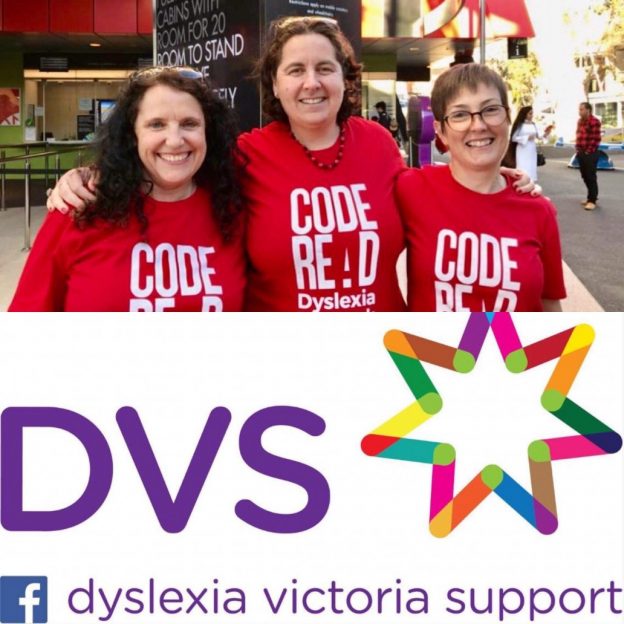
A big HUZZAH for the volunteer administrators of Dyslexia Victoria Support, who have won a Victorian Premier’s Volunteer Champions Award for their advocacy on behalf of people dealing with dyslexia.
Heidi Gregory, Carolyn Merrett and Sarah Asome each discovered a lack of high-quality information, and an abundance of snake oil vendors, when searching for help for their own children who struggled to learn to read and spell.
Determined to help others in the same situation, they’ve:
- Set up a Facebook page that now has over 3500 members,
- Mentored the launch of 16 local and regional Victorian dyslexia support groups,
- Developed a website,
- Collated over 100 dyslexia-related factsheets,
- Coordinated an annual state-wide family day for dyslexia awareness
(Light it Red for Dyslexia), and - Supported the launch of a national dyslexia network (Code REaD Network)
Dyslexie font, coloured overlays and Irlen Syndrome
34 Replies
One of the excellent Dyslexia Victoria Support folk was telling me the other day that she’s planning to write to public libraries asking them to stock decodable books.
This seems to work. All my local Yarra, Darebin and Moreland libraries now have some books with simplified spellings for beginning and/or struggling readers.
The DVS person was thinking about how libraries can help people with dyslexia because she found the following information on the Moreland website:
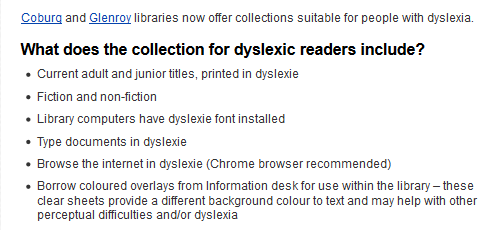

Of course this information is well-intended, but it’s not well-informed. (more…)
Nobody advocates phonics-only literacy instruction
9 Replies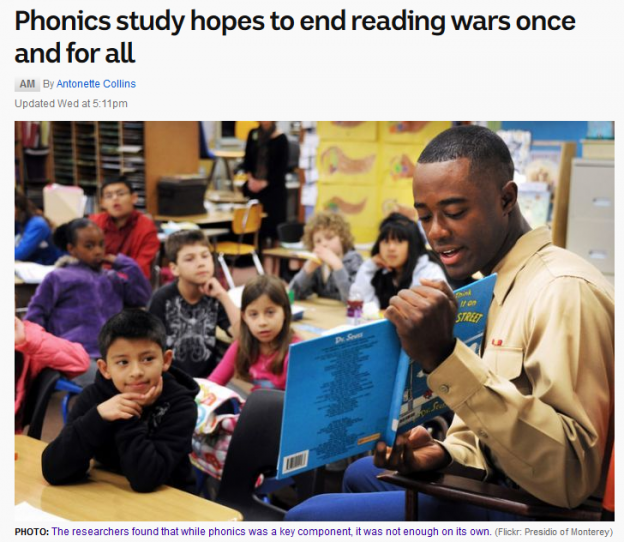
An important article by Anne Castles, Kathleen Rastle and Kate Nation summarising the process of learning to read from novice to expert, and seeking to end the “reading wars”, has just been published.
It’s written in plain English and freely available online. It says that phonemic awareness and phonics are vital and central during the early stages of learning to read, but that a lot of other things are involved in becoming a proficient reader. Please read it and share the link around.
Of course, the media’s antennae tend to be tuned to conflict not consensus, so one newspaper reports this with the headline, “Call off the reading wars, phonics wins: study“. The ABC also interviewed one of the authors, Anne Castles, who said a lot of tremendously sensible things as she always does (you can hear her in a radio report here), and also sought comment from Dr Paul Gardner of Curtin University’s School of Education.
Re ending the “reading wars” he said that, “the problem was with those who advocate phonics as the only approach” and added that “They tend to be people with no classroom experience … from speech pathology, cognitive psychology and think tanks”.
Now, I know not everything is about me, but I reckon I’m probably one of the people he is talking about, since I write a widely-read blog about phonics and am a speech pathologist.
If I wrote a blog about cycling, I’d be very surprised to hear anyone claim I was advocating cycling as the only means of transport. If I wrote a blog about pineapples, I doubt anyone would infer that I was advocating a pineapples-only diet. (more…)
What is a decodable book?
19 Replies
A decodable book is a book for a beginning or struggling reader which contains words she or he can sound out.
In practice this means it contains sound-letter relationships and word types its reader has been taught. It doesn’t include patterns not yet taught.
Decodability thus describes how well a book/text matches its reader’s decoding skills. It gives us a proper, objective way of identifying a just-right book, by ensuring lesson-to-text match. (more…)
The nature of reading development and difficulties
12 Replies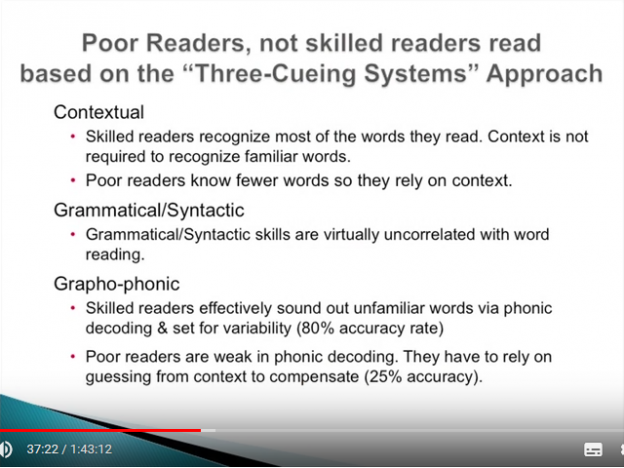
Last day of the school holidays. Time to summarise David Kilpatrick’s third excellent seminar, “The Nature of Reading Development and Reading Difficulties”, presented at the 2017 Reading in the Rockies conference.
Here it is on Youtube, if you just want to cut to the chase:
Numbers in brackets refer to the time on the video clock, to help you find sections of particular interest.
(2:14) Tens of millions of dollars are spent on reading research, and the findings go into journals, never to be heard of again, unless you’re a reading researcher.
Working as both a school psychologist and a university lecturer gave Dr Kilpatrick access to these journals, and made him think about their practical application to kids sitting across the table from him in schools. (more…)
Our goal is to develop phoneme proficiency in kids
6 Replies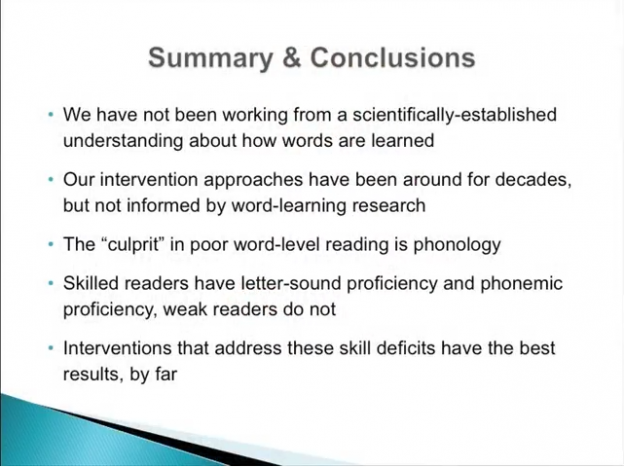
This is a summary of the second half of an online video seminar entitled “Assessment and Highly Effective Intervention in Light of Advances in Understanding Word-Level Reading” (the first half I recently summarised here), which I hope encourages you to watch the whole thing.
It’s by Dr David Kilpatrick, was recorded at the 2017 Reading in the Rockies conference, and is on the Colorado Dept of Education website. Thanks so much to all those involved in putting this great information in the public domain.
The talk’s summary and conclusions are a good place to start:
- We have not been working from a scientifically-established understanding about how words are learned.
- Our intervention approaches have been around for decades, but are not informed by word-learning research.
- The “culprit” in poor word-level reading is phonology.
- Skilled readers have letter-sound proficiency and phonemic proficiency, weak readers do not.
- Interventions that address these skill deficits have the best results, by far.


